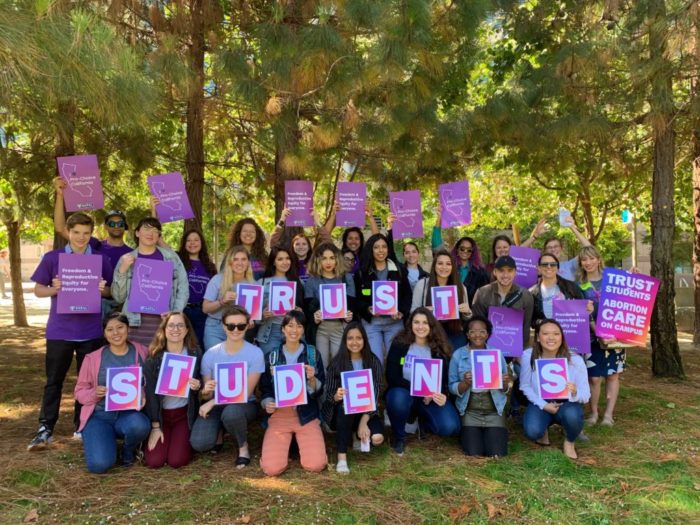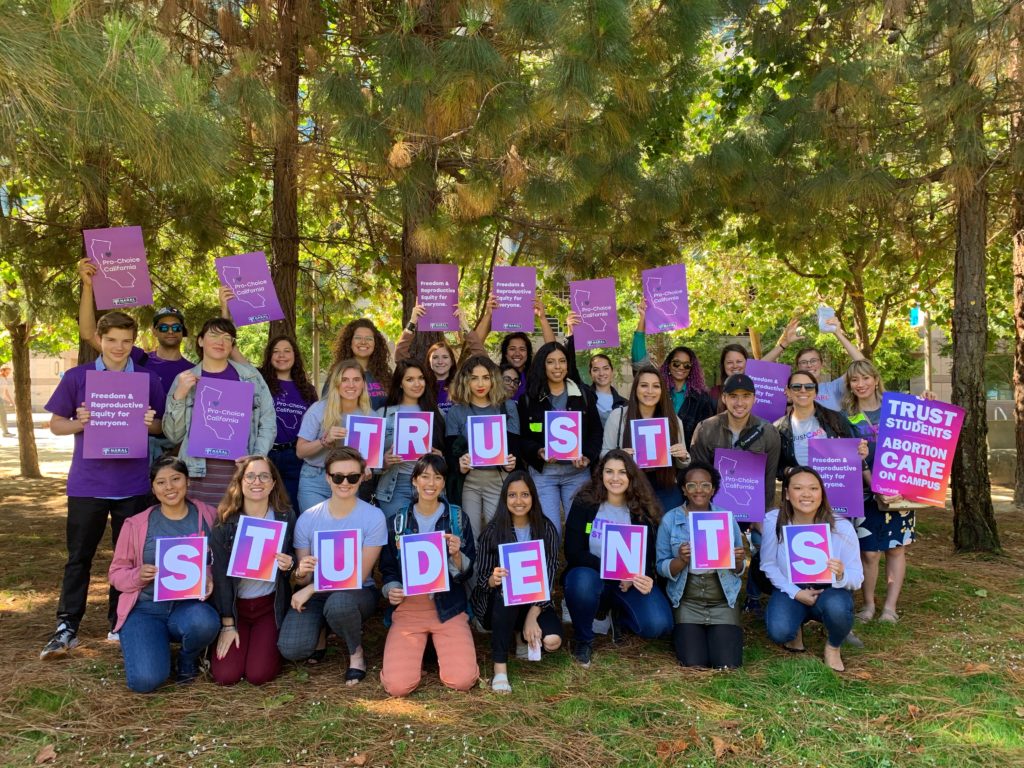Hello fellow feminists! My name is Emma Warshaw and I am the co-founder and current Vice President of the Students for Reproductive Freedom (SRF) at UC Davis. I’m also a former intern with the Feminist Majority Foundation in Los Angeles, so I’m excited to be writing this post for such an iconic organization. Over the past year and a half, SRF has been working to pass SB 24, or the College Student Right to Access Act, a California state bill that would make medicated abortion available in all student health centers in the University of California and California State University systems. This is a groundbreaking bill and one that would solidify California’s pro-choice stance in a moment of pure political volatility in the United States.
Right now, the bill is on Governor Gavin Newsom’s desk. This is not the first time SB 24 has been a single signature away from becoming law: in 2018, Governor Jerry Brown vetoed the bill, using the rationale that it was “unnecessary”. I think I can safely speak for all SB 24 advocates when I say we’re still not sure what he meant by “unnecessary”: the data proves otherwise. What we do know is that the UC and CSU systems had not, and still have not, given their support for a bill that would provide accessible, equitable care to all students.

When the bill was vetoed last year, I was coincidentally taking a journalism class at UC Davis. For my final feature article, I decided to write about the history of SB 24 and the potential reasons that the UC system in particular was not declaring its support. I interviewed student activists and the original bill authors. I interviewed UC Regents officials and the chancellor of UC Davis. I even interviewed a student who had to access her abortion care off campus. Ultimately, my findings from the UC side of the story revealed a lot of fear: the UC is so paralyzed by the idea of siding with a political ideology that they resort to inaction. Abortion, of course, is a medical procedure. It should not be politicized–but that’s a topic for another blog post.
What was interesting was my classmates’ reactions to the story. This class was composed of male, female, and non-binary students, traditional students, students with children of their own, students over 30, military veterans, and even people who were outspoken about their opposition to abortion. Despite all of these personal details, we were all able to agree that no student should have to fend for themselves in a time-sensitive and already stressful situation. Every single person at the table was baffled by the idea that students couldn’t access abortion care on campus, especially for something as simple as medication abortion.
My experience writing this article was informative on so many levels: when I began writing, I was pissed off, to put it plainly. I was fed up with the state of abortion rights in the United States and ashamed of California for not passing the bill the first time. I also had my own prejudice against people who didn’t “believe” in abortion.
By the time I discussed the article with my peers, I realized that like anything else, it’s much more complicated. The UC has been afraid of polarizing the community by taking a stance, but if my classmates proved anything, it’s that we have the ability to see past the traditional “morality” argument against abortion that’s so vehemently thrown around. As a group of diverse students, we all understood and agreed with the objective of this bill: the freedom to choose. If a random assortment of UC students can figure that out, there’s no reason that the UC and CSU system leaders cannot do the same. Most importantly, there’s certainly no reason our lawmakers in California cannot decipher it for themselves.
It’s time to pass SB 24.

